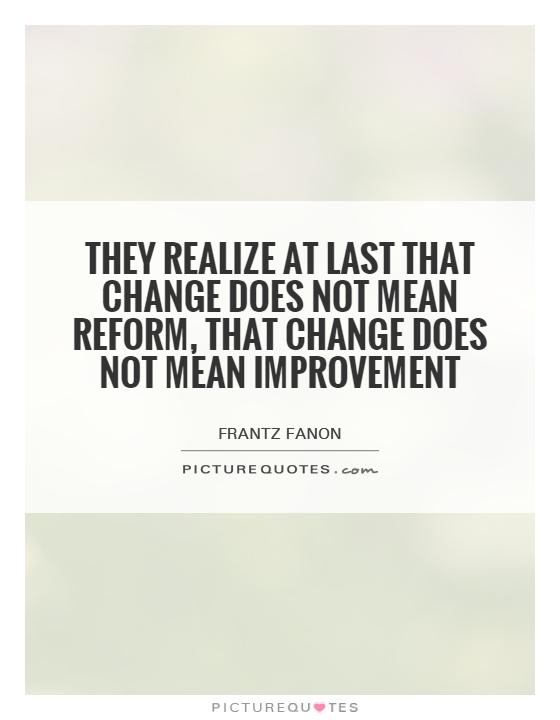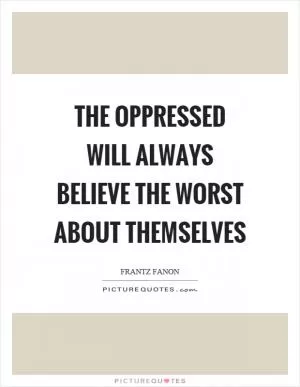They realize at last that change does not mean reform, that change does not mean improvement

They realize at last that change does not mean reform, that change does not mean improvement
Frantz Fanon, a revolutionary thinker and psychiatrist, was known for his critical analysis of colonialism and its impact on the psyche of both the colonizer and the colonized. In his seminal work, "The Wretched of the Earth," Fanon explores the psychological effects of colonization on the oppressed and the oppressor, and the ways in which liberation can only be achieved through radical change rather than mere reform.Fanon argues that true change cannot be achieved through superficial reforms that do not address the root causes of oppression. He believed that the colonial system was inherently violent and dehumanizing, and that any attempts to reform it would only serve to perpetuate the existing power structures. In the context of colonialism, change does not mean improvement if it does not challenge the fundamental inequalities and injustices that underpin the system.
For Fanon, true liberation required a complete dismantling of the colonial system and the creation of a new society based on principles of equality, justice, and self-determination. He believed that the oppressed must reject the false promises of reform and instead embrace radical change that challenges the existing power dynamics and creates a new social order.
Fanon's ideas have had a profound impact on decolonial movements around the world, inspiring generations of activists to reject incremental change in favor of revolutionary transformation. His critique of reformism continues to resonate today, as many marginalized communities continue to struggle against systems of oppression that offer only token gestures of change without addressing the underlying structures of power.












 Friendship Quotes
Friendship Quotes Love Quotes
Love Quotes Life Quotes
Life Quotes Funny Quotes
Funny Quotes Motivational Quotes
Motivational Quotes Inspirational Quotes
Inspirational Quotes